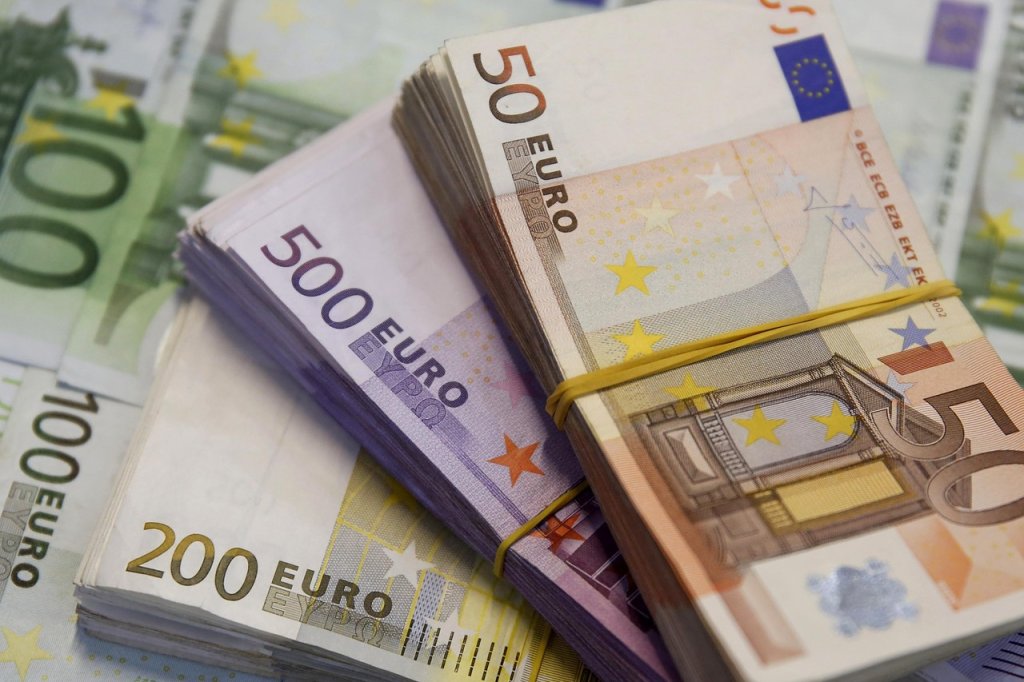RIYADH: The euro weakened against the dollar on Wednesday amid another sharp increase in oil and natural gas prices and while investors waited for US President Joe Biden to unveil new sanctions against Russia during his trip to Europe.
Biden, who is heading to Brussels for talks with NATO and European leaders, will push Europe to reduce its reliance on Russian oil and gas, and could announce new sanctions on members of the Russian parliament over Moscow’s invasion of Ukraine.
The EU currently seems unlikely to agree to a ban on Russian oil which would also weigh on the euro.
“An embargo on Russian oil would increase the likelihood of Russia turning off the gas tap to Europe in return,” Ulrich Leuchtmann, head of FX research at Commerzbank, wrote, saying such a scenario could throw Europe into recession.
Sanctions to ‘hammer global markets’
Russian Deputy Prime Minister Alexander Novak said on Wednesday global energy markets would collapse if sanctions were imposed on oil and gas from Russia, a major exporter of hydrocarbons.
The EU, which relies heavily on Russian energy, has been considering expanding sanctions on Moscow imposed over the Ukraine crisis to include hydrocarbons. EU foreign ministers disagreed on Monday about whether to proceed.
The US and Britain, both far less reliant on Russian fuel, have taken steps to ban Russian oil imports.
“Russia is the largest supplier, the share of Russian energy resources on global markets stands at around 40 percent. Obviously, oil and gas markets would collapse without Russian hydrocarbons in the event that sanctions were imposed,” Novak said.
He told Russia’s lower house of parliament that there was a shortage of crude in global markets of about 1 million barrels per day.
UK inflation jumps again
British inflation rose to a new 30-year high of 6.2 percent last month, at the very top end of expectations among analysts, official data showed on Wednesday.
The median forecast in a Reuters poll of economists had pointed to a reading of 5.9 percent
Stocks hit near three-week peak as investors dump bonds
Emerging market stocks advanced on Wednesday as investors fleeing a selloff in bonds poured cash into equities, while Russia’s rouble eased marginally after Ukraine said talks with Moscow were “confrontational” but moving forward.
Global bond markets have slumped in recent sessions on signs that the US Federal Reserve would act even more aggressively to tame inflation, with the benchmark US 10-year Treasury yields jumping to its highest since May 2019.
That has left cash on the table for equities, and helped MSCI’s index of EM stocks rise 0.8 percent to its highest in nearly three weeks on Wednesday.
Emerging currencies, meanwhile, were flat against a steady dollar. The rouble continued to hover around 104 against the greenback as investors waited for US President Joe Biden to unveil new sanctions against Russia.
South African currency
South Africa’s rand firmed slightly after data showed that headline consumer price inflation was at 5.7 percent in February, unchanged from January.
The South African Reserve Bank is expected to raise its repo rate to 4.25 percent on Thursday to combat inflation, according to a Reuters poll.
“The sudden more hawkish stance by developed market central banks … provides added incentive for the SARB to increase rates in congruence with its peers and try to limit capital outflows,” said Shaun Murison, a senior market analyst at IG.
“Of concern is that the size of the South African economy remains smaller than it was pre-pandemic and will remain so in the coming years, unless growth can be stimulated significantly higher than what is currently forecast.”
Improved risk sentiment and high commodity prices could boost the prospects of some emerging market assets, even as supply disruptions and weak external demand raise risks of weaker growth, analysts have said.
Argentina interest rate
Elsewhere, Argentina’s central bank raised the benchmark interest rate by 200 basis points to 44.5 percent from 42.5 percent, the third hike this year as the bank takes aim at a global supply shock.
Turkey’s lira
Turkey’s lira firmed 0.2 percent as data showed consumer confidence in the country climbed 1.3 percent in March, rebounding from a decline in the previous month.
Egyptian pound
The Egyptian pound steadied after two days of losses, with more signs of a possible new finance package with the International Monetary Fund emerging after the government announced a budget restructuring.
South Korean won
The South Korean won also steadied after the country nominated veteran IMF official Rhee Chang-yong as its new central bank chief, a pick who is expected to continue efforts to curb inflation with aggressive rate hikes.



